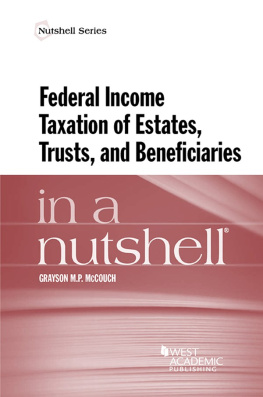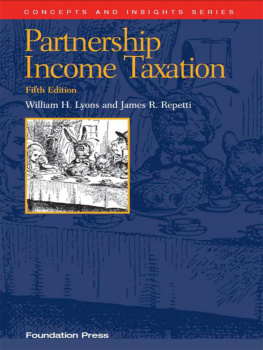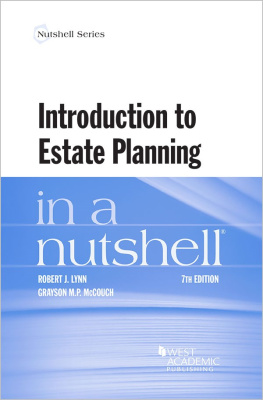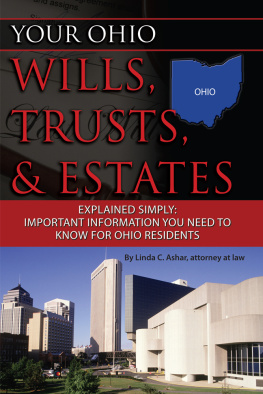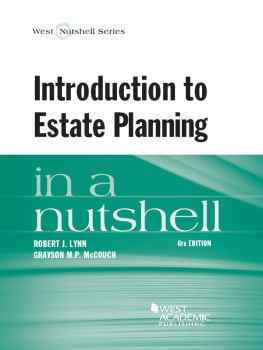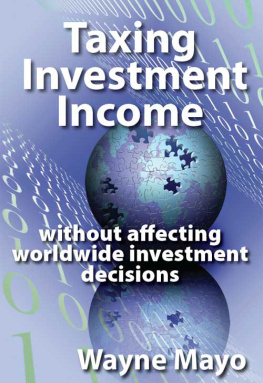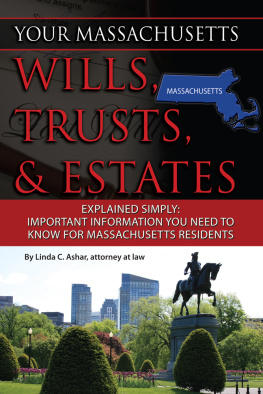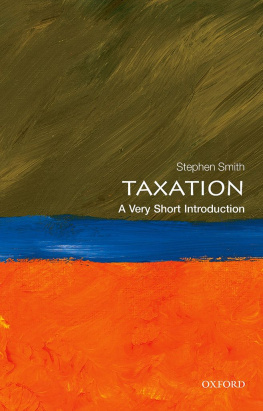WEST ACADEMIC PUBLISHINGS LAW SCHOOL ADVISORY BOARD
JESSE H. CHOPER
Professor of Law and Dean Emeritus,
University of California, Berkeley
JOSHUA DRESSLER
Distinguished University Professor, Frank R. Strong Chair in Law
Michael E. Moritz College of Law, The Ohio State University
YALE KAMISAR
Professor of Law Emeritus, University of San Diego
Professor of Law Emeritus, University of Michigan
MARY KAY KANE
Professor of Law, Chancellor and Dean Emeritus,
University of California, Hastings College of the Law
LARRY D. KRAMER
President, William and Flora Hewlett Foundation
JONATHAN R. MACEY
Professor of Law, Yale Law School
ARTHUR R. MILLER
University Professor, New York University
Formerly Bruce Bromley Professor of Law, Harvard University
GRANT S. NELSON
Professor of Law, Pepperdine University
Professor of Law Emeritus, University of California, Los Angeles
A. BENJAMIN SPENCER
Earle K. Shawe Professor of Law,
University of Virginia School of Law
JAMES J. WHITE
Robert A. Sullivan Professor of Law Emeritus,
University of Michigan
Federal Income Taxation of Estates, Trusts, and Beneficiaries
IN A NUTSHELL
GRAYSON M.P. M c COUCH
Gerald Sohn Professor of Law
University of Florida

The publisher is not engaged in rendering legal or other professional advice, and this publication is not a substitute for the advice of an attorney. If you require legal or other expert advice, you should seek the services of a competent attorney or other professional.
Nutshell Series, In a Nutshell and the Nutshell Logo are trademarks registered in the U.S. Patent and Trademark Office.
2017 LEG, Inc. d/b/a West Academic
444 Cedar Street, Suite 700
St. Paul, MN 55101
1-877-888-1330
West, West Academic Publishing, and West Academic are trademarks of West Publishing Corporation, used under license.
Printed in the United States of America
ISBN: 978-1-63460-309-6
PREFACE
Fiduciary income taxation is a dynamic and rewarding field of study. The basic statutory framework, set forth in Subchapter J of the Internal Revenue Code, has remained remarkably stable since its enactment in 1954, although the detailed provisions of the statute and regulations have become increasingly complex. Much of the complexity in Subchapter J flows inexorably from the interplay of federal income tax principles with evolving rules of local law concerning fiduciary accounting and administration and with the separate system of federal estate and gift taxes. In addition, the statute and regulations are replete with technical requirements and restrictions designed to limit opportunities for tax avoidance. Nevertheless, the surface complexity of Subchapter J cannot completely obscure the logical coherence of its underlying structure.
This book provides a concise introduction to the federal income taxation of decedents, estates, trusts, and beneficiaries. It is intended to be read by students and by lawyers and other professionals involved in estate planning and administration. Its goal is to provide sufficient background and explanatory discussion to allow the reader to grasp the basic principles of fiduciary income taxation. To that end, the text includes numerous concrete examples illustrating the operation of specific rules as well as occasional discussion of relevant case law and administrative rulings. Reference is frequently made to provisions of the Internal Revenue Code and the accompanying Treasury regulations, underscoring the importance of having those sources accessible and reading them together with this book. Readers who wish to pursue matters in greater depth can find comprehensive discussions in the leading treatises on fiduciary income taxation.
The topical coverage of this book follows the sequence and organization found in many courses and teaching materials. Chapter 1 provides a general overview of the federal tax treatment of gifts and bequests and introduces some basic principles of fiduciary income taxation. The next two chapters focus on a decedents income tax liability for the taxable year ending at death (Chapter 2) and the treatment of income in respect of a decedent in the hands of an estate or other successor (Chapter 3). Chapter 4 discusses the classification and duration of an estate or a trust as a separate taxable entity, and the following three chapters examine the conduit rules which constitute the heart of Subchapter J. Under those rules, an estate or trust is taxed on income that is accumulated for future distribution (Chapter 5), but income that is distributed during the taxable year is taxed to the beneficiaries who receive it (Chapter 7). The concept of distributable net income serves as a measuring rod to determine the amount and character of the distributions received by the beneficiaries (Chapter 6). Chapter 8 deals with grantor trusts and explains the circumstances in which a grantor who retains beneficial enjoyment or control of an inter vivos trust may be treated as the trusts owner for income tax purposes. The remaining chapters discuss several types of trusts that qualify for special income tax treatment, including trusts for charitable purposes (Chapter 9), foreign trusts (Chapter 10), accumulation trusts (Chapter 11), and a few other trusts governed by specific statutory provisions (Chapter 12).
In preparing this book I have benefited greatly from the helpful advice and suggestions of current and former colleagues. I am especially grateful to Dennis Calfee and Lawrence Lokken for their friendship, encouragement, and guidance. Finally, I would like to thank Louis Higgins and the West Academic production staff for their invaluable assistance in bringing this book to publication.
Grayson M.P. McCouch
August, 2017
Gainesville, FL
OUTLINE
. Income in Respect of a
Decedent
5.8 Depreciation, Depletion, and
Amortization
6.4 Extraordinary Dividends and Taxable
Stock Dividends
8.6 Adverse, Related, and Subordinate
Parties
8.10 Powers to Control Beneficial
Enjoyment
:
672(f)
10.6 Deemed Sale on Transfer to Foreign
Trust
TABLE OF CASES
References are to Pages
Anastasio v. Commissioner, 97
Aragona Trust v. Commissioner, 127
Bedell Trust v. Commissioner, 101
Blair v. Commissioner, 33
Brigham v. United States, 185
Brownstone v. United States, 122
Chase Manhattan Bank v. Gavin, 43
Clifford, Helvering v., 33, 210
Corliss v. Bowers, 210
DeBonchamps, United States v., 98, 306
DeBrabant v. Commissioner, 172
Deutsch v. Commissioner, 185
Diedrich v. Commissioner, 7
Duberstein v. Commissioner, 38
DuPont Testamentary Trust v. Commissioner, 176
Elm Street Realty Trust v. Commissioner, 101
Fabens v. Commissioner, 167
Frane v. Commissioner, 80
Funk v. Commissioner, 306
Goodwyn, Estate of v. Commissioner, 294
Grace, Estate of, United States v., 223
Harrison v. Schaffner, 33
Higginson, United States v., 172
Hirschmann v. United States, 99
Horst, Helvering v., 32
Irwin v. Gavit, 9
Jones Trust v. Commissioner, 357
Kaestner Family Trust v. North Carolina Department of Revenue, 43
Keck v. Commissioner, 71
Kenan v. Commissioner, 189
Knight v. Commissioner, 118
Koffman v. United States, 306
Kohnstamm v. Pedrick, 211
Krause v. Commissioner, 224, 273

